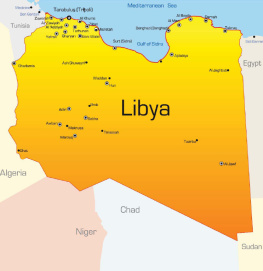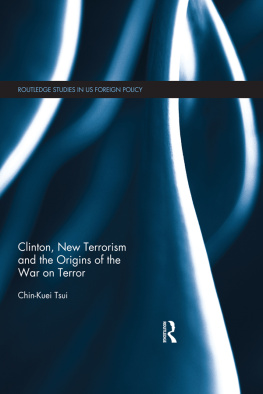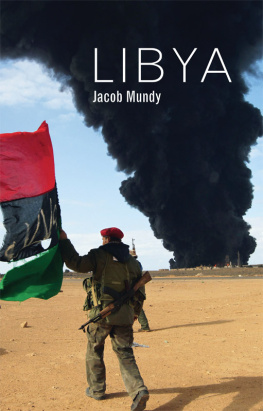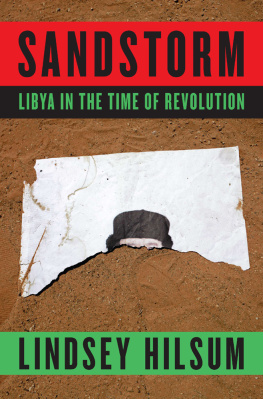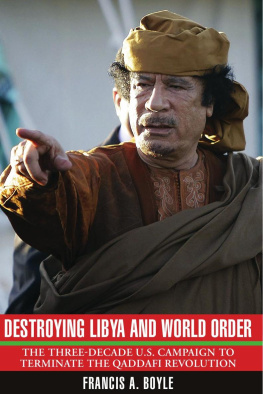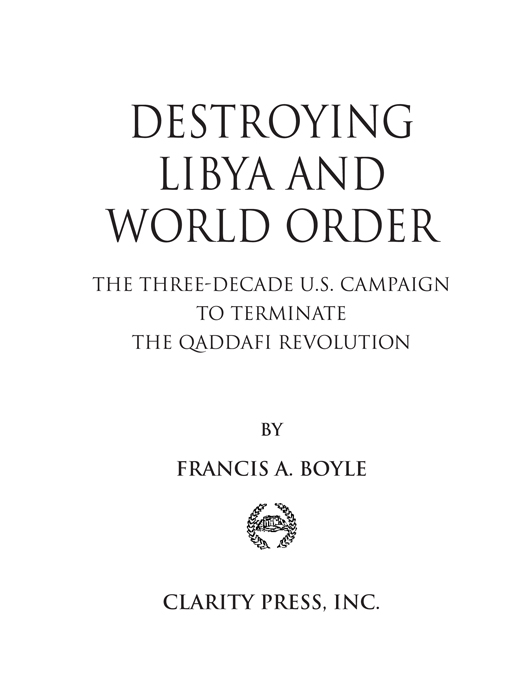Let the free people of the world know that we could have bargained over and sold out our cause in return for a personal secure and stable life. We received many offers to this effect but we chose to be at the vanguard of the confrontation as a badge of duty and honour. Even if we do not win immediately, we will give a lesson to future generations that choosing to protect the nation is an honour and selling it out is the greatest betrayal that history will remember forever despite the attempts of the others to tell you otherwise.
M UAMMAR Q ADDAFI*
____________________
Qaddafi website publishes last will of Libyan ex-leader, BBC News, 23/10/2011
2013 Francis A. Boyle
ISBN: 0-9853353-7-8
978-0-9853353-7-3
E-book: 978-0-9860362-0-0
In-house editor: Diana G. Collier
Cover: R. Jordan P. Santos
ALL RIGHTS RESERVED: Except for purposes of review, this book may not be copied, or stored in any information retrieval system, in whole or in part, without permission in writing from the publishers.
Library of Congress Cataloging-in-Publication Data
Clarity Press, Inc.
Ste. 469, 3277 Roswell Rd. NE
Atlanta, GA. 30305 , USA
http://www.claritypress.com


INTRODUCTION
I have unique experience in Libya. To the best of my knowledge, during the 1980s I was perhaps the only American professor to spend a significant amount of time in Libya because of the serial armed hostilities and the imposition of draconian travel prohibitions and economic sanctions inflicted by the Reagan administration. I spent a sum total of four weeks in Libya on three different trips.
In 1985 Libya invited me to conduct a week-long lecture tour and visit. I lectured at universities in Tripoli and Benghazi. I also lectured live on Libyan national television from their studio in Tripoli, and some of my public lectures were broadcasted by Libyan television.
About one-third of all Libyans. In proportional terms, this approached the Nazi Holocaust against the Jews. Of course Italy also exterminated Jews and Ethiopians as well as Libyans. These victims included the Italian murder of Libyas acclaimed national liberation hero and martyr, Omar Muktar.
At their request, I would later advise Libya on how to sue Italy over its colonization and outright genocide perpetrated against the Libyans. Protracted negotiations between Libya and Italy eventually led to a settlement of those claims that was concluded between Colonel Qaddafi and Prime Minister Sylvio Berlusconi in 2008, providing for a $5 billion dollar compensation package to be transferred to Libya over twenty years. This token sum was a mere pittance compared to the actual number of human deaths and the amount of physical destruction that Italy had inflicted upon Libya. Nevertheless, that agreement was treacherously repudiated by Berlusconi during the course of his 2011 war against Libya. Berlusconis illegal and despicable act has re-opened Libyas claims for colonization and genocide against Italy.
During my first trip to Libya, I was surprised to see that women were free and empowered to do anything they wanted all over the country. I asked my government-provided translator about this. He advised: Qaddafi decreed that women are equal to men. The old men dont like it. But there is nothing they can do about it. As I can attest from my three trips to Libya, under Qaddafi women held up half the sky in that country. I doubt very seriously that the 2011 US/NATO war will advance the cause of women in Libya. Indeed, Libyan women could very well retrogress from Qaddafis days as, undoubtedly, will the general well being of the Libyan population from its standing in the 2010 U.N. Human Development Index.
In 1987 I returned to Libya for another two weeks after the Reagan administration had bombed Tripoli and Benghazi in 1986 and attempted to murder the entire Qaddafi family sleeping in their home at night. I visited all the bombing sites in the Metropolitan Tripoli area and had a tour of the bombed-out Qaddafi home. I then had a meeting with Colonel Qaddafi in his tent where we discussed what happened to him and his family on the night of the bombing. Qaddafi was a Bedouin from the desert, so he liked to meet guests and conduct business in a pitched tent. It was a practice which he carried out even on travel to the U.N. in New York, for which he was generally ridiculedthough in actuality it represented his determination to maintain his cultural identity, symbolic of his ongoing commitment to his people, rather than to the imperial West.
At the end of that meeting I agreed with Colonel Qaddafi to work with former U.S. Attorney General Ramsey Clark on filing lawsuits in United States federal courts over the bombings against President Reagan, Secretary of Defense Weinberger, Director of the C.I.A. Casey, the U.S. Joint Chiefs of Staff, the U.S. Commander of NATO, the Commander of the U.S. Sixth Fleet, and U.K. Prime Minister Margaret Thatcher, who gave permission to Reagan to use a U.K. base where U.S. bombers were stationed to bomb Libya-together with suing both the United States and the United Kingdom. We lost. Two lawyers against two empires.
In June of 1988 I returned to Libya as their guest in order to attend the session of their Basic Popular Congress meeting in Beida for the adoption of the Great Green Charter for Peace and Human Rights. Interestingly enough, Colonel Qaddafi proposed to abolish the death penalty for Libya. But the Basic Popular Congress rejected his humanitarian initiative: Democracy in action! While there I also provided commentary to C.B.S. Evening News about what precisely was going on and its significance for promoting human rights internally.
Over the years, I would routinely give interviews to Western news media sources about Libya and the prospects for the United States government to overthrow Colonel Qaddafi. I always pointed out that the American government should be careful of what it wished for: Instead of installing a C.I.A. stooge, the United States could get a fundamentalist religious leader sitting on top of Libyas oil fields and occupying that strategic piece of real estate in North Africa and on the southern rim of the Mediterranean right next to Egypt. Colonel Qaddafis foremost opponents had always been Libyas Muslim fundamentalists who detested him for (1) his secular-nationalist rule deliberately modeled upon his hero and role model, Egypts Gamal Abdel Nasser; (2) his liberation and empowerment of Libyan women; and (3) Qaddafis Green Book that tried to carve-out a third way between capitalism and communism that was consistent with Islam, but which they nevertheless considered to be heretical. For the most part, Libyans constitute a moderate Sunni Muslim population. Yet in order to overthrow Qaddafi in 2011, the U.S. and NATO states worked hand-in-glove with Libyan and imported foreign Muslim fundamentalists including elements of Al Qaeda and Salafists. Somalia on the Med, anyone?
After the Bush Senior administration came to power, in late 1991 they opportunistically accused Libya of somehow being behind the 1988 bombing of the Pan American jet over Lockerbie, Scotland. I advised Libya on this matter from the very outset. Indeed, prior thereto I had predicted to Libya that they were going to be used by the United States government as a convenient scapegoat over Lockerbie for geopoliical reasons.
Next page

